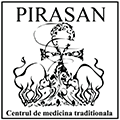Insomnia was defined as a disease characterized by sleep disorders as well as by disorders of the recovery metabolic processes that take place while we sleep. Insomnia is one of the most frequent affections, occurring mostly in women and old people.
The natural process of night rest is affected as a result of:
- Failure to fall asleep, even if the body is very tired
- Repeated waking during night and difficulty in falling asleep again
- Waking after a few hours’ sleep, at very early hours, unable to fall asleep again
- Failure of the body to recover during sleep (even if the you “sleep” 7-8 hours a night, you wakes up tired because you stay the state of superficial sleep and you have a restless sleep).
As a result of these disorders, the body does not have enough resources to carry out the activities. The following occur: continuous somnolence, chronic fatigue, diminished concentration and memory, petulance, nervousness. Both the efficiency and the intellectual and professional performances are affected.
Failure to treat insomnia or an inappropriate treatment may have serious repercussions upon the physical and mental health. First of all, the immune system will be weakened, the body will no longer be able to protect itself from the action of the pathogenic factors and the already existing affections may aggravate.
The cognitive functions will be diminished and the fatigue will be reflected upon the mental health, too: the patient will undergo intense emotional fluctuations of anxiety, depression etc. Behavior and personality disorders my also occur.
The type of insomnia is diagnosed depending on the frequency of the sleepless nights. Taking these into account, the stage of the affection is ascertained, whether this is:
- Transitory – of short duration; it lasts from one night to several weeks
- Intermittent – transitory insomnia episodes repeated at irregular periods
- Chronic – for several months the patient could not sleep at least a few nights a week
Where the chronic insomnia occurs only as an effect of other diseases, it is primary chronic insomnia.
Certain diseases cause spasms of pain during night and lead to the onset of secondary chronic insomnia (e.g.: cancer. cardiovascular diseases etc.)
The body’s rest and recovery rhythm disorder is due to multiple factors:
- Long lasting action of stress upon the human psychic
- Physical and intellectual over-exertion
- Sedentary life and lack of activity
- A imbalanced nutrition, with plentiful dinners
- An chaotic life style, with random sleeping hours and without a set waking hour
- Presence of other chronic diseases causing pain or discomfort
- Alcohol or drug abuse
- Abuse of drinks or substances with an excitative effect upon the nerve system: coffee, tea, energizing drinks, juices etc.
- Administration of sleeping pills or of other substances with a similar effect for long periods
- Certain drugs with an excitative effect upon the nerve system
- Sudden and fundamental changes in the environment or in the life style (change of continent and of time zone etc.)
- Anxiety, depression etc.
- Functional disorders of the endocrine glands (epiphysis, pituitary gland, thyroid gland, adrenals)
Treatment
When the metabolic disorders occur in the body, various chronic affections break out. The sick organs are constantly conveying information to the brain about their condition, but at a lower frequency than usually, which leads to the onset of a state of cerebral hyper-excitation.
According to these information, the brain acts as if the body were awake, even on the moments when the state of sleeping sets in. The energy circuit and the cerebral nerve impulses being broken, the basal metabolism no longer assures the body’s recovery and regeneration. The continuous accumulation of fatigue and the lack of rest feed the vicious circle of insomnia.
In traditional medicine, the treatment of insomnia involves restoration of organs, of the cerebral energy circuit as well as of the basal metabolism. At the same time, the frequency of the information conveyed by the organs to the brain increases to a level at which it can be received and interpreted by the brain in order to begin the healing process.
These objectives are attained by acupuncture sessions and by the action of certain herbs.
At the same time with treating the diseases that caused the insomnia, in order to relax the body during the treatment, we activate those acupuncture points that regulate the cycle waking – sleeping state and that induce sleep. Thus, the treatment does not induce states of somnolence during day and it does not affect the daily activities.
The herbs contain substances that help the organs recover; they also have a relaxing, sedative and fortifying effect upon the nerve system.

